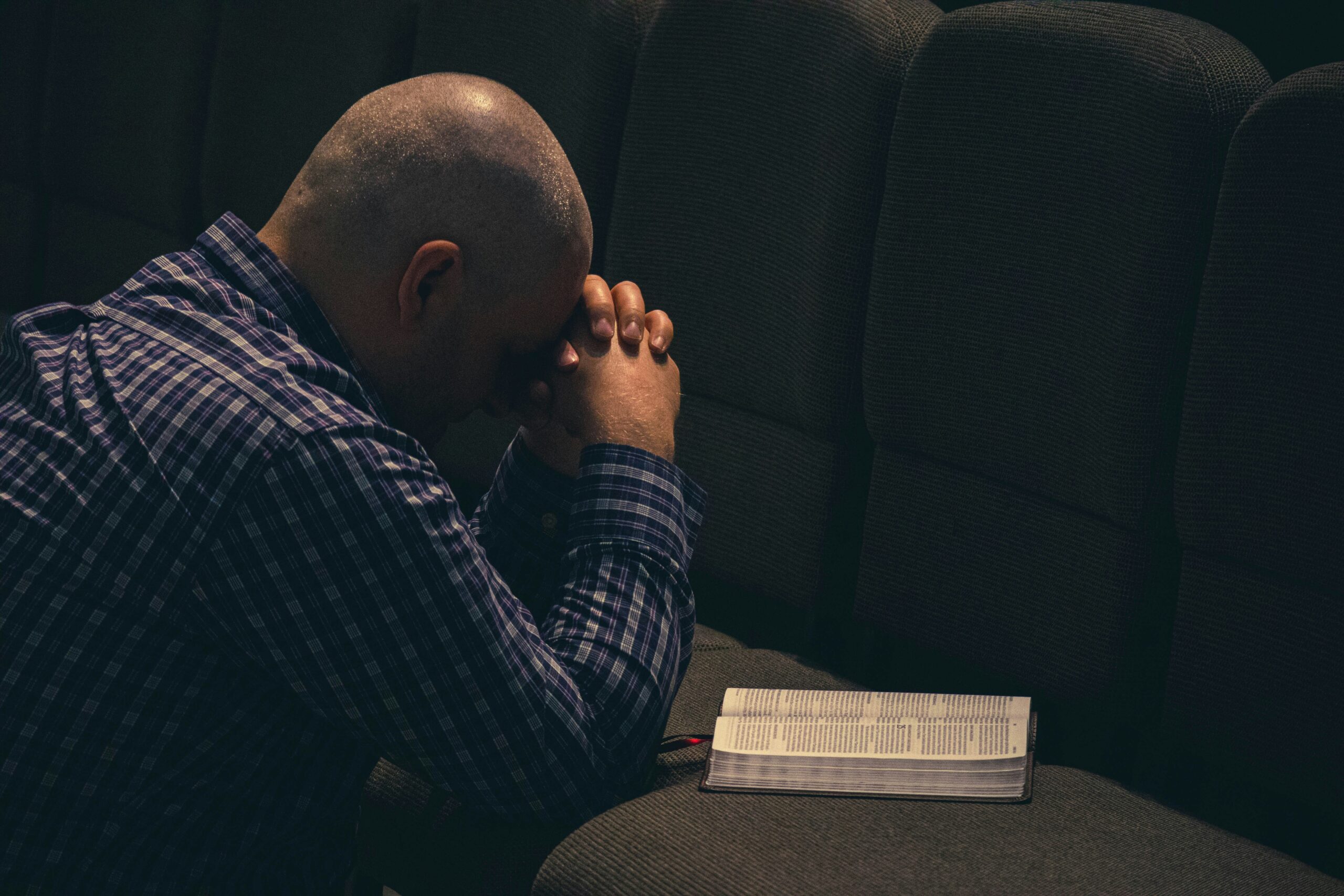
Grief: How to Cope With the Loss of a Loved One
Grief is incredibly powerful, complex and overwhelming. Grief is a shared human experience that all of us have or one day will experience. The thing that makes it so difficult is the finality and totality of the loss. To think that our loved one will never again be among us, sit with us at the table, speak to us, laugh with us feels unthinkable and unsurmountable.
The way we react to grief varies widely from person to person, and also within the same person over time. People who have experienced loss may have a range of emotions that include everything from shock, numbness, loneliness, denial, despair, anger, guilt, regret, and helplessness. Oftentimes, people feel multiple emotions intensely at the same time when grieving.
Despite grief being a universal emotion, it is often misunderstood by the person experiencing it as well as their loved ones who are trying to help. Many people think that there is a right way to grieve and a wrong way to grieve. This can’t be further from the truth.
Our goal in this post is to illuminate some misconceptions of grief and some things to remember when experiencing grief or if you know of a loved one grieving:
Acknowledge the pain you are experiencing and give yourself the time and permission to grieve:
While this may be a natural gut reaction, trying to ignore your pain or keep it from surfacing will only make it worse in the long run. It is not uncommon for people to throw themselves at work or turn to substance abuse to cope with grief – anything that will distract them from the pain. However, for healing to take place, it is necessary to face your grief and actively deal with it.
The pain of losing someone you love may cause you to experience a range of emotions including anger, guilt, regret, depression, or loneliness. If you are feeling these emotions, it is extremely important to allow yourself to experience them rather than bottling them up. Seek out friends and family who are supportive rather than isolating yourself.
Do not be afraid to express how you feel. You don’t have to put on a brave face.
When you lose someone dear to you, it is absolutely normal to feel sad, frightened, lonely, and helpless. You don’t need to “protect” your family and friends by trying to be stoic and putting on a brave place. You are human and you have every right to feel this way when you’re in this situation. Showing your true feelings can also help your friends and family, who may also be grieving, connect with you and possibly help each other get through this period together.
If you feel that the emotions are too overwhelming and private to share with a friend or family member, seek out a therapist who can listen to you. Whatever is the case, you are not obligated to be “strong” when experiencing such a difficult moment in life.
Remember that there are many different reactions to grief – not everyone cries when experiencing it:
While crying is certainly a normal response to sadness, it is not the only one.
Not crying during a death or funeral is not as uncommon as you might think. Instead of worrying about whether it makes you or someone a bad person, understand that grief can express itself in a myriad of ways. For example, some people who just experienced a loss may be in denial, as they cannot imagine their world without their loved one in it. Some people may have experienced so much loss in their lives already, that their immediate reaction is to feel numb – but then feel intense grief much later.
Allow yourself the time necessary to grieve – even if it takes longer than one might expect.
It is important to remember that grief does not have a time limit or expiration date. Well-intentioned friends and family members may encourage you to move on, saying perhaps that the person you loved would want you to be happy. However, it is possible and normal to still feel profoundly sad even after a year or more of passing. Do not put pressure on yourself, on top of the grief you are experiencing. There is no set timeline for grieving.
Do not compare yourself to others who may seem to be coping with grief better.
The relationship you had with your loved one who passed is different. The experiences you have lived with them are your own, as well as the emotions you experienced with them. Therefore the grieving process even after they are gone will be different for you. For all you know, others may look like they are doing fine in public but feel just as sad in private.
Remember that moving on does not mean forgetting.
One day, even though it may feel distant or unfathomable for those reading this right now, you will find yourself appreciating beauty in your life again, smiling and laughing, and feeling happiness. However just because you are starting to appreciate life again without your loved one, it does not mean you are forgetting about the person or that you no longer love them. There will also be days where you feel happy, and other days suddenly sadness over your loss hits you again but you have accepted the loss of your loved one and are learning how to live with the loss of their physical presence.
The memory of someone you lost is still an important part of you, and in fact that loss continues to shape and define the person you become as the days go by.
The ‘5 stages of grief’ does not apply to everyone.
The concept of ‘5 stages of grief’ describes that a person experiencing grief will undergo the following emotions in order: denial, anger, bargaining, depression, and finally acceptance. This concept comes from Dr. Elizabeth Kubler-Ross’ book On Death and Dying published in 1969. However, grief is not this simple nor does it follow a linear and predictable timeline. Instead, it is more like a rollercoaster of emotions where you can repeat steps in this “timeline” or even add other emotions / stages that did not factor into the Kubler-Ross model of grieving.
Remember that you don’t have to do this alone.
If you find that your grief is too debilitating, overwhelming, and find yourself thinking dark thoughts, just remember you do not have to do this alone. Reach out to a supportive friend or family member who can just be present for you. Comfort can come from just being around those who care about you.
If you do not feel comfortable confiding in with anyone you know from your inner circle, then seeking out a counselor or therapist can definitely help you work through your grief. Remember, grief is a complex emotion where someone can feel intensely multiple emotions at once – and it will help having someone by your side to help you work through them. The key is to not isolate yourself.
God feels deep and profound compassion and empathy for us as we experience grief:
John 11:32-35: When Mary reached the place where Jesus was and saw him, she fell at his feet and said, “Lord, if you had been here, my brother would not have died.” When Jesus saw her weeping, and the Jews who had come along with her also weeping, he was deeply moved in spirit and troubled. “Where have you laid him?” he asked. “Come and see, Lord,” they replied. Jesus wept.
It is important to remember that God experiences deep compassion, empathy, and concern for us when we grieve. This is a pivotal moment in the Bible where Jesus experiences the death of Lazarus, whom he loved dearly. Jesus witnessed the grieving sisters and villagers and felt deeply moved and troubled. Upon learning where Lazarus was buried, Jesus wept.
Shortly after, Jesus goes to the tomb and asks the people to take away the stone covering Lazarus’ burial place. Jesus prays to God, thanking Him for listening to his prayers. Jesus then calls out loudly to Lazarus, ordering him to come out. Lazarus rises from the dead and walks out of the cave.
Why did Jesus weep if he knew that he could pray to God and call Lazarus back from the dead? These verses are poignant because it clearly shows that Christ himself felt not only deep sorrow for the death of his beloved friend but also deep compassion for all humankind who will, sooner or later, have to experience grief and loss. When Jesus saw Lazarus’ sisters and friends weeping, he wept alongside them. As divinity incarnated as flesh and blood, Jesus experienced first hand what it truly meant to lose someone you love.
If you are experiencing grief and feel overwhelmed by the wave of emotions, remember that God has profound compassion for our suffering. When we feel utterly alone and don’t feel like turning to anybody else, remember that God is there for us and we can turn to Him in the depths of our sorrows.
You can watch the accompanying Anchor of Hope video here.
Enjoyed our blogpost? Subscribe to our newsletter for more resources on mental health and integrating the Gospel message in your healing journey.
If you found our resources useful, please consider donating to Oak Health Foundation, which is a 501(3)c nonprofit dedicated to providing resources regarding holistic mental healthcare and subsidized treatment for those in need.




